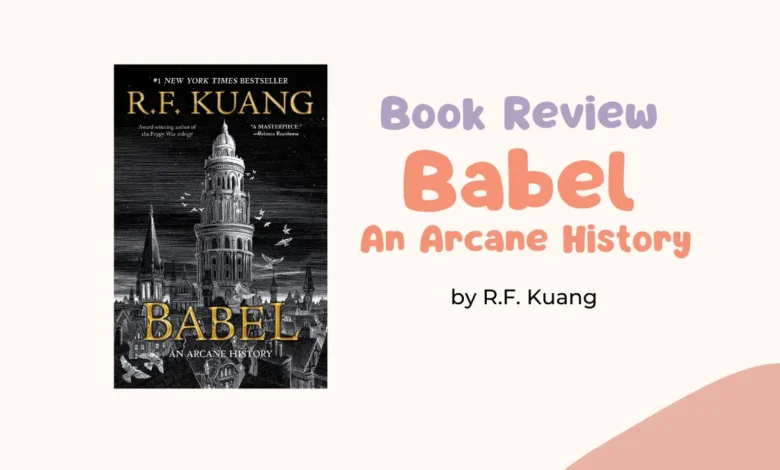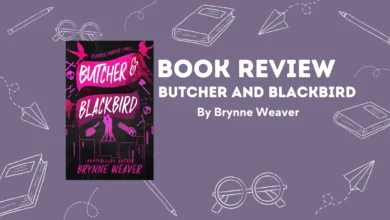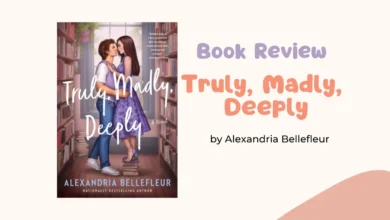Book Review: Babel: An Arcane History by R.F. Kuang

Introduction
Babel: An Arcane History by R.F. Kuang has captivated readers with its rich blend of historical fiction, fantasy, and philosophical musings. As the latest work from the acclaimed author of The Poppy War, it presents a world where language and magic intersect in powerful and often dangerous ways. Yet, with its intricate world-building and themes of colonialism, elitism, and power dynamics, it’s a book that demands more from its readers than just a passive reading experience. But does it strike the right balance between its ambitious ideas and its engaging narrative?
In this review, I’ll dive deep into the book’s plot, themes, characters, and the way it builds its unique world to determine whether Babel is a triumph of fantasy literature or a challenging read that leaves more questions than answers.
Plot Summary
Babel is set in a fictional 19th-century England, where the prestigious university of Babel, an institution devoted to the study of translation and magic, is at the heart of the story. The protagonist, Robin Swift, is a young man from China, brought to England as an orphan after his family’s tragic death. As he navigates the halls of Babel, Robin’s talent for languages is nurtured, but he soon learns that the institution’s power is deeply tied to colonial exploitation and the manipulation of languages for political control.
As Robin becomes more entangled in Babel’s web, he must confront the moral complexities of his situation. He grapples with his loyalty to his friends and his growing understanding of the role Babel plays in maintaining imperial dominance. The novel’s story unfolds through his eyes, taking readers on a journey of self-discovery, rebellion, and an examination of the historical forces shaping the world.
Themes and Concepts
At its core, Babel explores themes of colonialism, language as power, and identity. The novel delves into how language itself can be weaponized, turning translation into a tool of oppression. The concept of “translation” in the book is far more than linguistic; it’s also political, as the act of translating words becomes a means of extracting knowledge and wealth from colonized nations. The characters’ struggle to reclaim their identities and challenge the societal systems built on language manipulation forms the emotional and intellectual heart of the novel.
Additionally, Babel critiques elitism within academia, portraying the ways in which institutions can perpetuate societal inequalities. The university setting is both a symbol of intellectual prestige and a microcosm of the larger imperialist structures that dominate the world outside. These themes resonate deeply in today’s world, where issues of power, identity, and privilege continue to shape global politics and societal structures.
Character Development
Robin Swift, the novel’s central character, undergoes a significant transformation throughout Babel. Initially, he is a talented yet naive student, focused solely on his studies and the promise of academic success. However, as he becomes more aware of the dark underpinnings of Babel and its connection to imperialism, his worldview shifts. His internal struggle between loyalty to his friends and his moral awakening is one of the most compelling aspects of the novel.
The supporting characters, particularly Robin’s friends—Rami, Letty, and Victoire—add depth to the narrative. Each of them brings a unique perspective on the issues of race, identity, and power. They serve as both companions and foils to Robin, providing contrasting views on how to confront the challenges they face. Their relationships are central to the story, and their individual arcs highlight the complexities of loyalty, friendship, and resistance.
Worldbuilding and Setting
One of the most striking aspects of Babel is its world-building. Kuang creates a university that feels both grounded in historical reality and infused with the magical. Babel is a place of great intellectual prestige, where the power of language is harnessed to create magical effects. The novel takes the reader through a richly detailed world, blending elements of historical England with speculative magic. The setting is a character in itself, shaping the narrative and emphasizing the themes of institutional power and control.
The concept of magic in the book is intricately tied to language, with each word or phrase carrying a unique magical potential. This ties into the larger commentary on how language has been used historically to maintain power and how the manipulation of language can reshape societies. The university of Babel, with its towering spires and hidden secrets, becomes a symbol of both intellectual achievement and the dangers of unchecked authority.
Writing Style and Narrative Voice
R.F. Kuang’s writing style in Babel is both elegant and thoughtful, perfectly complementing the complex themes she tackles. The narrative voice is introspective and reflective, often diving deep into the internal conflicts of the characters. Kuang’s prose is lush, drawing readers into a world that is both familiar and alien. Her use of language to describe the magical workings of Babel is especially effective, creating a sense of wonder while also conveying the weight of the book’s more serious themes.
The pacing of the novel can be slow at times, especially in the earlier chapters as the world-building takes center stage. However, once the central conflict is introduced, the plot accelerates, and the stakes feel much higher. Kuang masterfully builds tension, culminating in a dramatic conclusion that is both satisfying and thought-provoking.
Pacing and Plot Development
The pacing of Babel fluctuates, but it is intentional. In the beginning, the novel takes its time establishing the world, the magic system, and the characters’ relationships. While some readers may find this slow, it’s essential for understanding the depth of the novel’s setting and themes. As the plot develops and the characters become more embroiled in the political intrigue of Babel, the story picks up pace, leading to an intense and compelling final act.
While the plot is driven by Robin’s personal journey, it is also a broader critique of colonialism and the societal structures that perpetuate inequality. The novel balances the personal with the political, creating a narrative that feels both intimate and universal.
Critical Reception and Public Opinion
Babel has received widespread critical acclaim for its ambitious blend of historical fiction and fantasy. Critics have praised Kuang’s ability to weave complex themes into an engaging narrative, as well as her deft handling of character development. The novel’s exploration of colonialism, power, and language has resonated with readers, and many have lauded its intellectual depth and social relevance.
However, some readers may find the book’s heavy themes and slow pacing challenging. The intricate world-building and philosophical musings may not be to everyone’s taste, particularly those seeking a more traditional fantasy adventure. Nonetheless, for readers who appreciate thought-provoking narratives that tackle complex issues, Babel offers a rewarding experience.
Final Thoughts and Recommendation
Babel: An Arcane History is a thought-provoking, ambitious work that blends historical fiction, fantasy, and political commentary. Kuang’s exploration of language as power, the moral implications of academic elitism, and the impact of colonialism make this book a timely and important read. While its slow pacing and dense themes may pose challenges for some readers, its intellectual richness and emotional depth make it a book worth persevering through.
I highly recommend Babel to fans of historical fantasy, readers interested in social commentary, and those looking for a complex and immersive narrative. If you enjoy books that make you think long after the last page is turned, Babel is sure to leave a lasting impression.
Rating: 4.5/5
Babel is a captivating and intellectually stimulating book that is sure to spark deep reflection. While not for everyone, its intricate world-building, rich themes, and compelling characters make it a standout in the fantasy genre.




